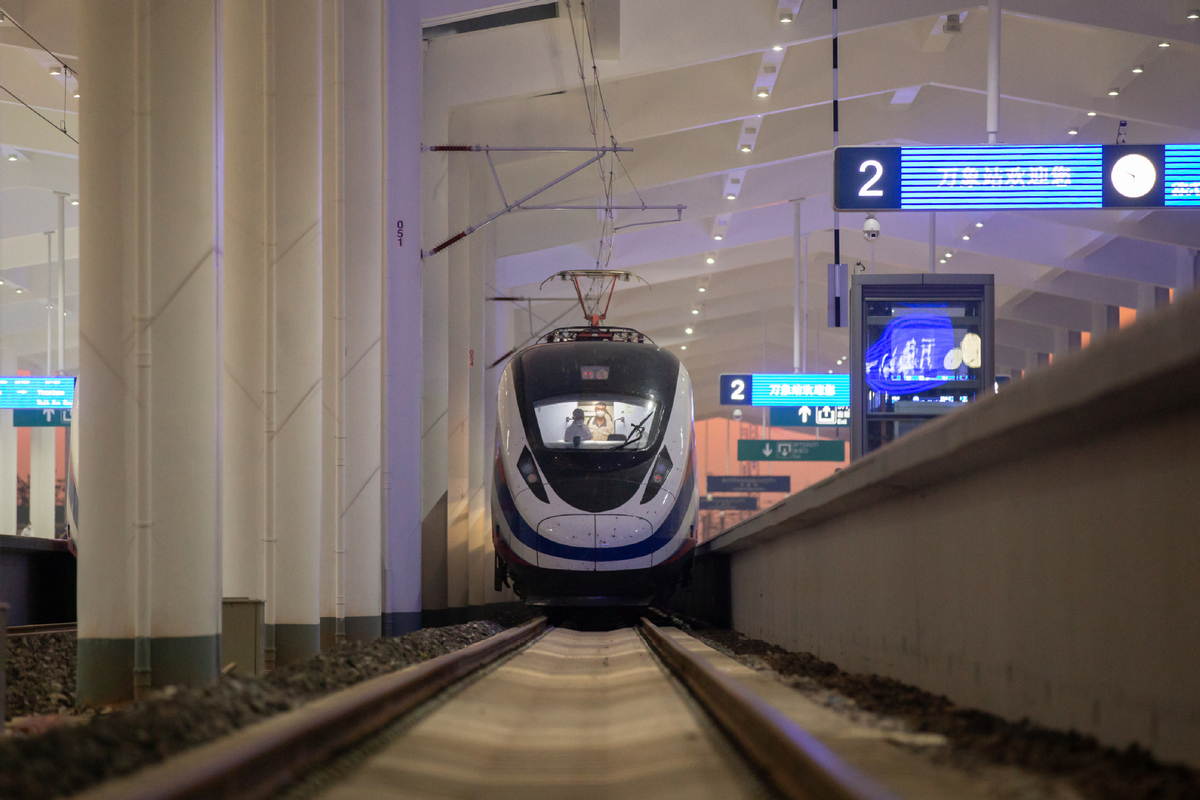Getting tourism rolling again with bullet trains
By ZHAO RUINAN | China Daily | Updated: 2021-12-01 09:37

For Benny Kong, a hotel owner and co-founder of a tour company in Laos, the China-Laos Railway is poised to bring more tourists and put business back on track.
The 33-year-old Singaporean, who lives in Laos, set up the MyLao-Home boutique hotel 14 years ago after a backpacking trip to Laos. That's when he discovered there was demand for hotels in Luang Prabang, a former Laotian capital and a World Heritage Site listed by the United Nations Educational, Scientific and Cultural Organization.
Kong's business was growing in tandem with the tourism industry in Laos-until the pandemic stuck.
After opening MyLaoHome in 2007, he watched the business grow over more than a decade as more overseas visitors traveled to Laos and made their way to the northern city famed for its temples and mountain scenery. The original 12-bedroom guesthouse was expanded to more than 60 rooms.
Then, Kong and other business operators had to contend with COVID-19. Before the pandemic hit, tourist arrivals in Laos grew by 11.5 percent year-on-year in 2019, taking the country to 16th place on a list of the top 20 fastest-growing tourism destinations, according to the United Nations World Tourism Organization.
More than 1 million Chinese visitors arrived in Laos in 2019, a jump of 265 percent over the same period in the previous year.
In 2019, Kong and his business partners launched Discover Laos Today, an online tour platform presenting videos and pictures of tourist destinations.
Going digital not only served him well when the tourist industry was badly hit by the pandemic but positions him to attract more foreign visitors once border restrictions are lifted.
"The website runs three languages-Lao, English and Thai-and we plan to launch our Chinese-language site in the near future," he said.
Kong said he is pinning his hopes on the China-Laos Railway, which is expected to open this week.
"The train will be a gigantic boost as many tourists consider convenience and safety as key factors," he said, adding that his company is setting up a branch in China, in the hope to draw more Chinese tourists.
Connecting Kunming with Vientiane, the rail services are expected to cut the journey to less than 10 hours with tunnels blasted through mountains and multiple bridges on the more than 1,000 kilometers of track. Buses take around 30 hours.
Kong said he plans to be on the first train when it is opened to the public and bring his team to make a video about it.
























